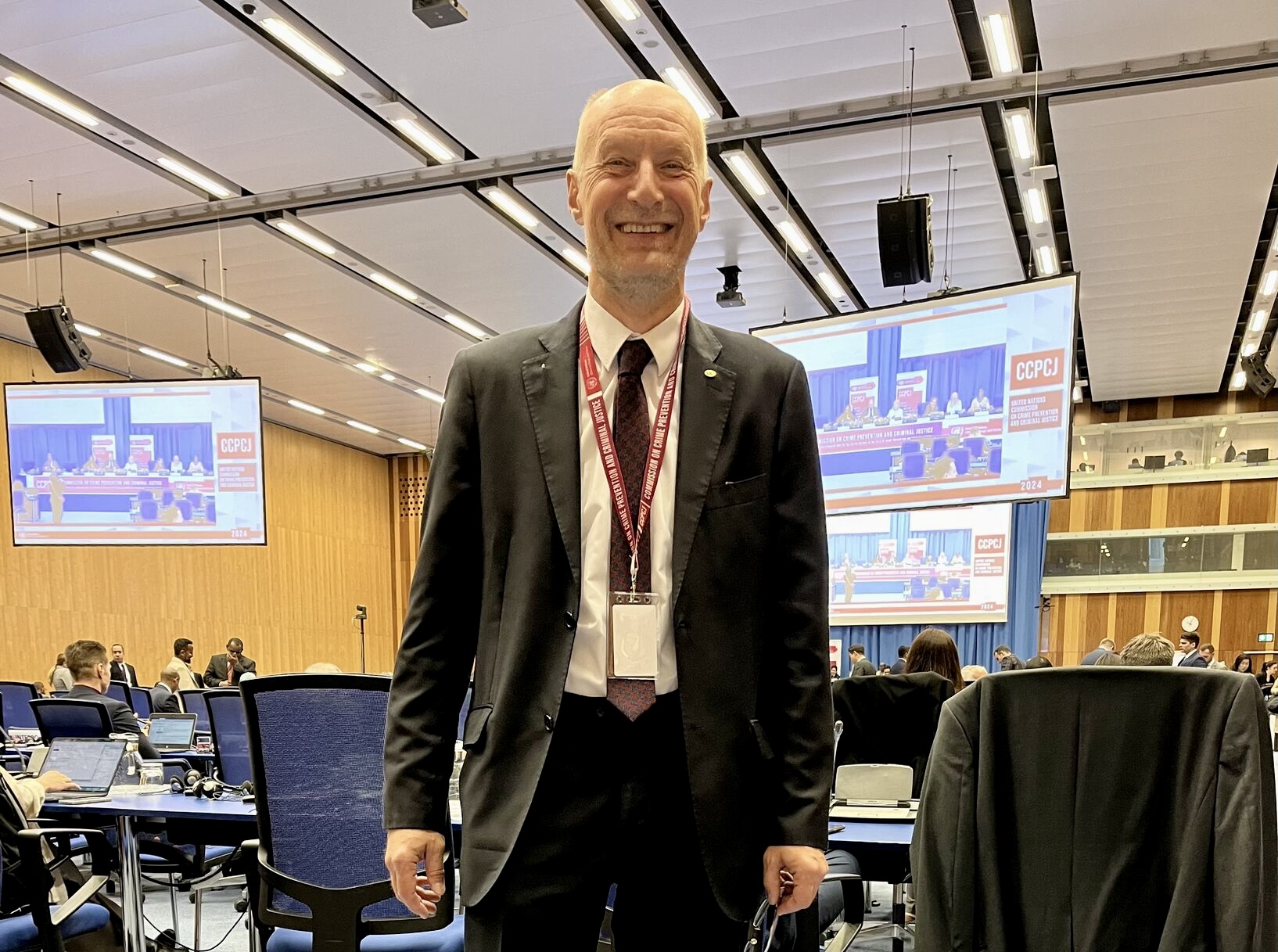Thought Leadership

Impressions from visiting the United Nations conference on crime prevention
By DC Member Jochen M. Richter
After years of absence, I was back at the UN, this time visiting as Diplomatic Council representative the above-mentioned conference. One realises that this unique forum still heralds the basic Diplomatic principles both, in terms of personal presentation (i.e. ties are still very consistently present) and diplomatic behaviour. Therefore, one can witness speeches from Russia, China and the US, almost one after the other, but providing a very different, indeed incompatible world view while all expressing concerns about world-wide operating organised crime. Maybe here is the only chance for a new way of creating future compromises. Therefore, a deep reform of the UN, WTO and WHO would be needed as unrealistic this seems for the moment.
However, at present resentment is expressed openly with the exception of China, regularly calling for better international cooperation while in a subtle way suggesting that this should happen in accordance with its rules and standards. This expression of division is further underlined by for example the Belarusian delegation stressing that in their view such cooperation is hampered by sentiments of superiority or the delegation of Kazakhstan stating that the international community can learn from its recent law enforcement reform.
Side events on the other hand shed light on the dramatic consequences of child trafficking that is wider spread than one can imagine. Of course, Covid and the increase in foreign labour were drivers in augmenting this problematic, leaving many victims unaccounted for and therefore not receiving any support. Equally, while AI will offer many avenues to prevent and fight crimes, this fast-evolving technology is unfortunately also amplifying the dangers through inter alia social media, be it when trying to find a partner or investing in crypto currency or even having a credit record.
While the many talks allowed to advertise the DC’s activities and the Global Security Forum, there is wide-spread concern that the world is turning towards more radical positions. The German government is seen as weak, Austrians are much concerned of a right-wing drift, Australia is watching with concern the uncertainty threatening behaviour of China and so I could more examples from the exchanges. South America and many countries in Africa and the Middle East and some in Asia are expressing sympathy for China’s seemingly third way. The US and Europe observes this with astonishment but both lack a concept. Indeed, democracy that was seen as having conquered the world after 1989 is no longer seen as a goal to be achieved.
Yet, along the conference many fascinating projects demonstrating the positive power of cooperation are impressive showcases. Therefore, the forthcoming work of the Global Security Forum will hopefully contribute to foster the idea that only through cooperation we can shape the future.
